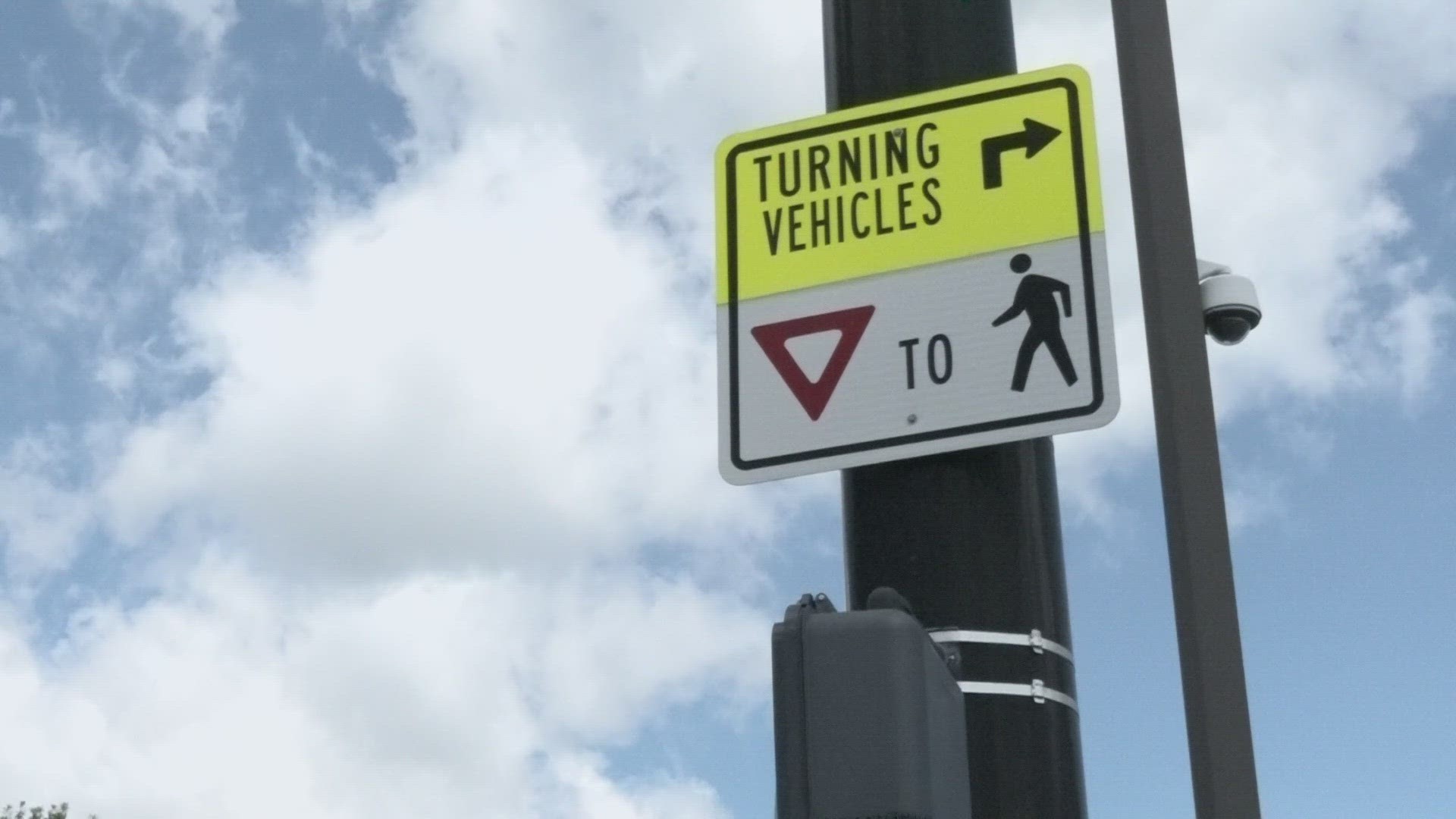BANGOR, Maine — Despite a hands-free law being implemented in Maine in 2019, Sgt. Jason McAmbley of the Bangor Police Department said distracted drivers are causing more pedestrian accidents, increasing the risk for walkers throughout the city.
The hands-free law prohibits drivers from talking, texting, or using phones and other handheld devices while either driving, stopped at a traffic light, or while in traffic.
The Maine Public Safety Department reported that, as of Aug. 20, there have already been 135 crashes involving pedestrians in the state this year, killing nine people.
In addition to the nine people killed this year, 23 people have been seriously injured, 54 people have been minorly injured, and 40 people have been possibly injured in pedestrian-involved crashes.
According to McAmbley, most of the pedestrian crashes he sees in his jurisdiction happen because drivers are using their phones rather than paying attention to the roads.
Although the hands-free law has been set in place for four years, McAmbley said his department is still experiencing staffing issues, making it hard to enforce the law and crack down on drivers who threaten pedestrian safety.
"It's understaffed, overworked police departments that don't have time to go out and run traffic the way we used to," McAmbley said. "It used to be, you know, if you're out, and hey things are kind of quiet on my section of town, I'll sit and run some traffic. We really don't have that much anymore because we're so short staffed, and we have so many calls. You're just going call to call to call to call."
Bangor pedestrians are feeling the effects of the coupled issue. Fitness trainer Skye Washington, who walks downtown every day, said walking safety is only getting worse.
"I think that people are in a rush all the time. They're not paying attention to what they're doing," Washington said. "I'm often seeing people looking down and texting, blowing through lights. Not being aware of bikers."
Biking to work used to be an everyday activity for Washington, but she said reckless drivers have forced her to switch up her routine.
"I used to bike to work. I live about a mile-and-a-half away," Washington said. "But just because of people driving so fast, I kind of stopped doing that and just doing the stationary bike at home instead."
Daily walker Tim Thompson said he has seen worse conditions for pedestrians, and he actually finds downtown Bangor to be more "walker friendly" than most places in southern Maine.
"There are a lot of sidewalks. The sidewalks are in good shape. The street crossings are really manageable," Thompson said.
Thompson said he occasionally sees distracted drivers, but for the most part, he said he feels drivers in Bangor are "in tune to what's going on around them."
"Here they're willing to let you go across the street, which doesn't always happen in some places. There's a friendly feel to this city," he said.
Letting a pedestrian cross the street is often seen as the nice thing to do, but McAmbley said being "polite" can cause more confusion for other drivers on the road who can't see the pedestrian coming.
"Oh yea, come on out into this lane. You're trying to cross two lanes because somebody's being polite," McAmbley said. "Technically, the person that caused that accident is the one who said 'Yes, go ahead, and come across two lanes of traffic when this lane has no idea.'"
McAmbley said the police department was working to create a traffic division, but staffing issues threw a wrench in the plans.
He said his department can't resume its plans for the new division until it hires about 15 new officers.
There are ways to walkers can walk defensively to avoid accidents and take matters into their own hands.
Pedestrians should always obey the pedestrian signals, McAmbley said. He also advised pedestrians not to use their phones while they're walking and to pay attention to drivers who may be distracted.
"The people driving those cars are really not paying attention anymore, and its rather unfortunate," McAmbley said.

